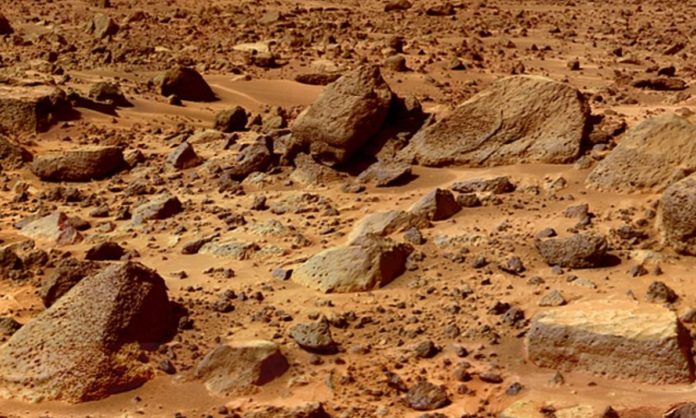An investigation of the data collected by the InSight probe allowed scientists to uncover surprising, and previously unknown features about the interior of Mars.
Just over two years ago, in May 2018, NASA sent the InSight probe to the red planet, which aimed to collect clues about the interior of Mars from the tremor of distant earthquakes and leaking of the deep heat from its soil. Despite numerous difficulties faced in the mission, scientists have finally managed to better understand the geological characteristics of the planet and its formation billions of years ago.
The results obtained show that the crust of the red planet is surprisingly thin, its mantle is colder than expected and its enormous iron core is still molten, detailed the scientific journal Science.
Obtaining the necessary evidence on Mars has been more difficult than scientists anticipated. The planet’s sticky soil has thwarted the work of InSight’s heat probe. In addition, in recent months the strong winds recorded on the Martian surface have affected the operation of the probe’s sensitive seismometers. As if that were not enough, there was an expected marsquake of magnitude greater than 4.5, which would have allowed a better understanding of the composition of its depths but it didn’t shake the ground.
However, two moderate marsquakes, of magnitudes 3.7 and 3.3, have helped partially solve the mystery about the crust of Mars and what lies beneath it.
- Scientists in Fear of This New Predator From Red Sea Eating Native Species in Mediterranean
- Does This Mean We Stopped Being Animal and Started Being Human Due to ‘Copy Paste’ Errors?
- The One Lifestyle Choice That Could Reduce Your Heart Disease Risk By More Than 22%
- Aging: This Is What Happens Inside Your Body Right After Exercise
- Immune-Boosting Drink that Mimics Fasting to Reduce Fat – Scientists ‘Were Surprised’ By New Findings
By analyzing the waves emitted by the marsquakes, scientists have managed to discover the approximate thickness of the Martian crust is between 20 and 37 kilometers. It directly indicates that it is unexpectedly thinner than our planet. The researchers believed that Mars, a smaller planet with less internal heat, had a thicker crust, with heat escaping through limited conduction and bouts of volcanism.
Its relatively thin crust could mean that the planet has lost heat efficiently, recycling its initial crust, rather than just accumulating it, like a rudimentary form of plate tectonics.
Another scientific experiment carried out aboard InSight has detected slight oscillations in the planet’s spin, something directly related to the size and consistency of its iron core. Preliminary results confirm that the core of Mars is liquid, with a radius, compatible with previous estimates made by spacecraft, of approximately 1,800 kilometers, that is, more than half the diameter of the planet.
After two Earth years, that is, approximately one Martian year, scientists estimate that new geological events will allow obtaining more precise evidence about the interior of the red planet. While Mars has not cooperated with experts so far, geophysicist Bruce Banerdt, principal investigator at InSight, expects a major tidal wave to hit the planet shortly and that might help to understand the data more clearly.
